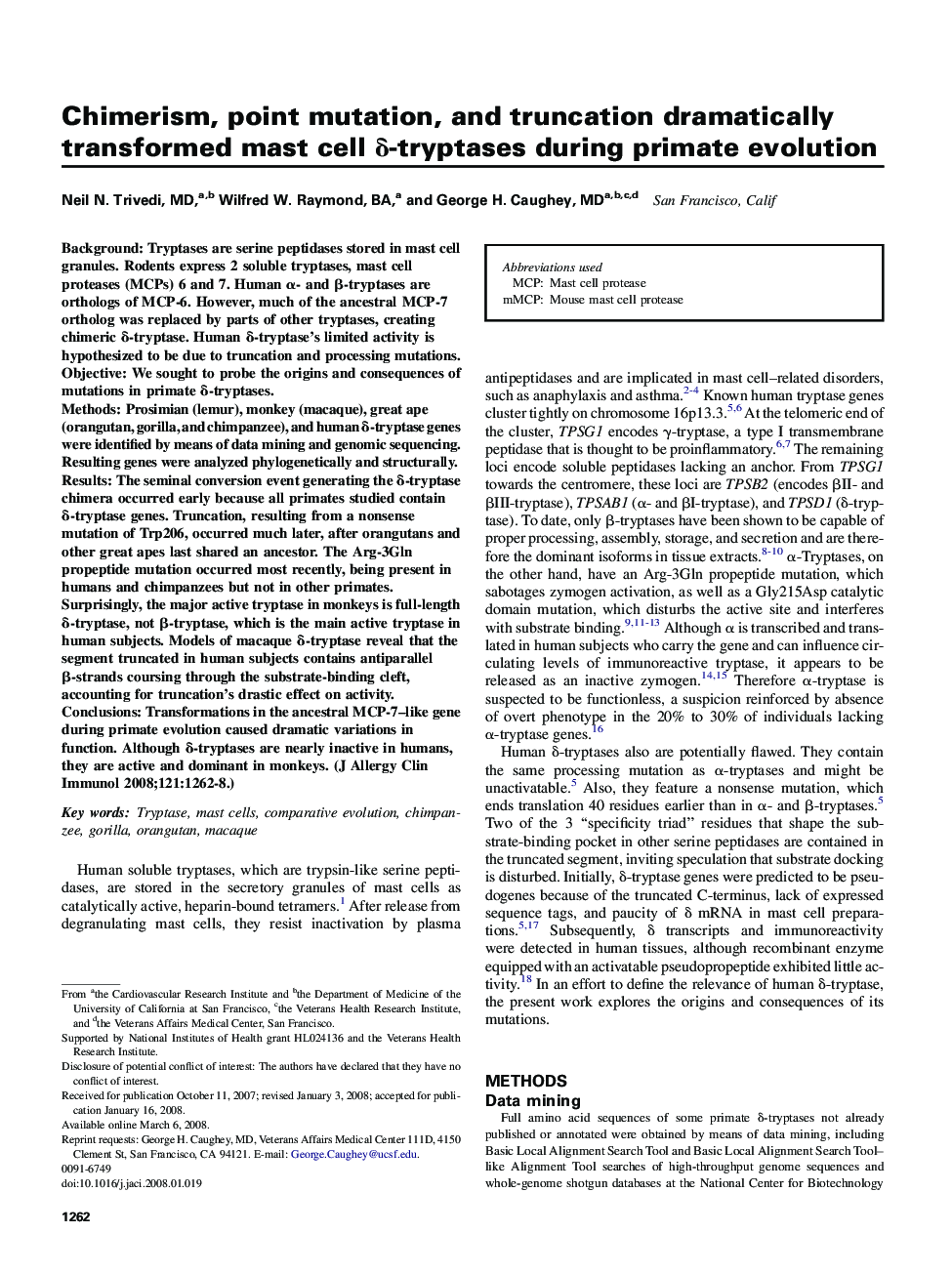| کد مقاله | کد نشریه | سال انتشار | مقاله انگلیسی | نسخه تمام متن |
|---|---|---|---|---|
| 3201213 | 1201950 | 2008 | 7 صفحه PDF | دانلود رایگان |

BackgroundTryptases are serine peptidases stored in mast cell granules. Rodents express 2 soluble tryptases, mast cell proteases (MCPs) 6 and 7. Human α- and β-tryptases are orthologs of MCP-6. However, much of the ancestral MCP-7 ortholog was replaced by parts of other tryptases, creating chimeric δ-tryptase. Human δ-tryptase's limited activity is hypothesized to be due to truncation and processing mutations.ObjectiveWe sought to probe the origins and consequences of mutations in primate δ-tryptases.MethodsProsimian (lemur), monkey (macaque), great ape (orangutan, gorilla, and chimpanzee), and human δ-tryptase genes were identified by means of data mining and genomic sequencing. Resulting genes were analyzed phylogenetically and structurally.ResultsThe seminal conversion event generating the δ-tryptase chimera occurred early because all primates studied contain δ-tryptase genes. Truncation, resulting from a nonsense mutation of Trp206, occurred much later, after orangutans and other great apes last shared an ancestor. The Arg-3Gln propeptide mutation occurred most recently, being present in humans and chimpanzees but not in other primates. Surprisingly, the major active tryptase in monkeys is full-length δ-tryptase, not β-tryptase, which is the main active tryptase in human subjects. Models of macaque δ-tryptase reveal that the segment truncated in human subjects contains antiparallel β-strands coursing through the substrate-binding cleft, accounting for truncation's drastic effect on activity.ConclusionsTransformations in the ancestral MCP-7–like gene during primate evolution caused dramatic variations in function. Although δ-tryptases are nearly inactive in humans, they are active and dominant in monkeys.
Journal: Journal of Allergy and Clinical Immunology - Volume 121, Issue 5, May 2008, Pages 1262–1268